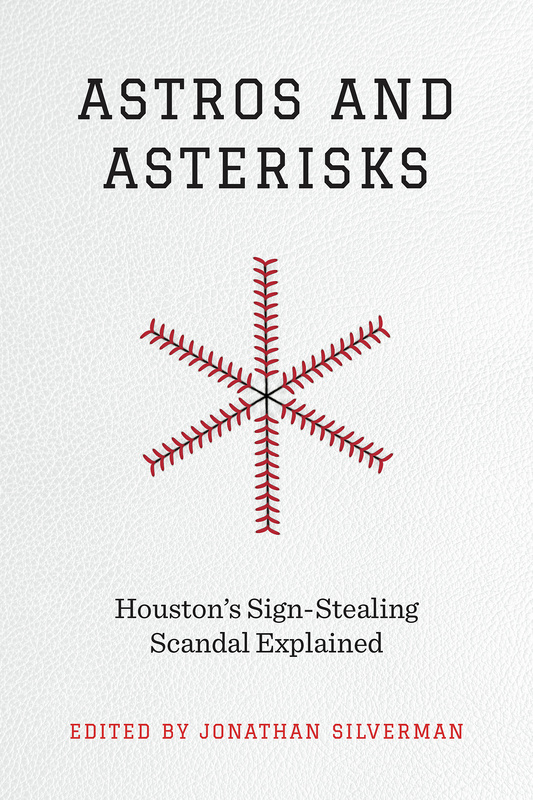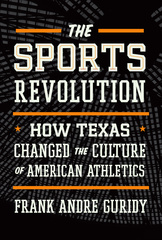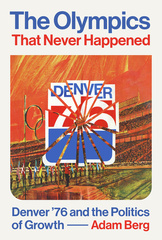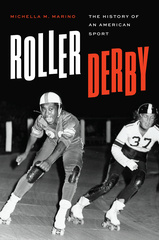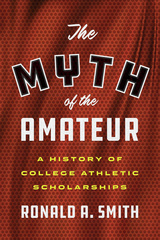Our shopping cart is currently down. To place an order, please contact our distributor, UTP Distribution, directly at utpbooks@utpress.utoronto.ca.
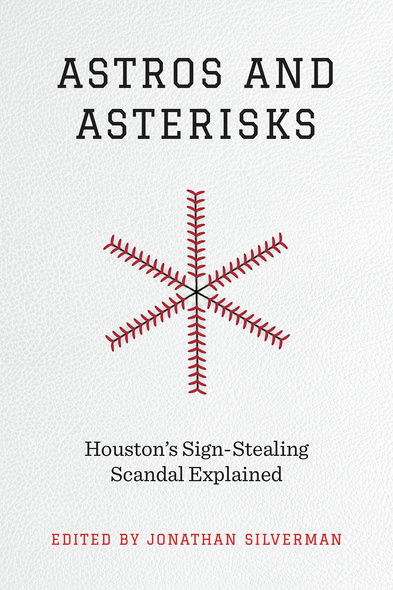
Astros and Asterisks
Houston's Sign-Stealing Scandal Explained
An in-depth and multiperspectival look at the Astros’ sign-stealing scandal and its roots in the culture of baseball fandom.
In 2017 the Houston Astros won their first World Series title, a particularly uplifting victory for the city following Hurricane Harvey. But two years later, the feel-good energy was gone after The Athletic revealed that the Astros had stolen signs from opposing catchers during their championship season, perhaps even during the playoffs and World Series. Their methods were at once high-tech and crude: staff took video of opponents’ pitching signals and transmitted the footage in real time to the Astros’ dugout, where players banged on trash cans to signal to their teammates at bat which pitches were coming their way. Wry observers labeled them the Asterisks, pointing to the title that no longer seemed so earned.
Astros and Asterisks examines the scandal from historical, journalistic, legal, ethical, and cultural perspectives. Authors delve into the Astros’ winning-above-all attitude, cultivated by a former McKinsey consultant; the significance of hiring a pitcher recently suspended for domestic abuse; the career-ending effects of the Astros’ transgression on opposing players; and the ethically fraught choices necessary to participate in sign-stealing. Ultimately, it links the Astros’ choices to the sporting world’s obsession with analytics. What emerges is a sobering tale about the impact of new technology on a game whose romanticized image feels increasingly incongruous with its reality in the era of big data and video.
This new anthology offers a host of perspectives on the scandal itself and what it reveals about the team and the sport as a whole. It makes for a fascinating read on one of the most revealing moments in professional sports in recent memory.
Despite this volume’s title and primary focus, many of its 15 essays go well beyond specifics of the Houston Astros’ 2017 sign-stealing scandal (and gamesmanship/cheating practices in sports in general) . . . In sum the book is an insightful but painful reflection on the conditions of sport and society in late capitalism.
For any learned fan interested in cheating within baseball outside of the PED scandals where deceitful action has been focused the past two decades, this is an important edition . . . [Astros and Asterisks] is a niche work, and it functions quite well in that niche to describe the contexts and contours of the scandal under analysis. Also, many of the chapters offer creative lenses for exploring sports, cheating, and modern ideas of technology and ethics in broader and interesting ways for social studies of sport.
Astros and Asterisks offers a sweeping, multidimensional look at baseball’s most recent cheating scandal in our age of technology and late capitalism. America’s tolerance of cheating is pervasive and concerning, but the essays in Astros and Asterisks also convey the hilarity of stealing signs via the old-fashioned technique of banging on trash cans coupled with cutting-edge technology. Is this just another moment of humorous baseball lore? Or have capitalism, technology, masculinism, and the mandate to win at all costs pierced the heart of the game? The baseball experts considering these questions from every angle leave the reader with the feeling that in the end, baseball is improbably, infuriatingly, and affectionately . . . still baseball.
When it comes to cheating, the 2017 Astros are tied with the 1919 White Sox and the 1951 Giants. This collection by reporters and scholars sheds light on how the team might have pulled off the deed and explores the ethics (or lack thereof) of using both old-fashioned and modern methods to gain advantages in baseball. Astros and Asterisks will enlighten fans and haters alike.
Jonathan Silverman is a professor of English at UMass Lowell. He is the coauthor of Johnny Cash International: How and Why Fans Love the Man in Black and author of Nine Choices: Johnny Cash and American Culture.
- Acknowledgments
- Introduction
- Timeline
- Part I. Histories of Cheating in Baseball
- Chapter 1. Baseball, Hot Dogs, Apple Pie, and Cheating: Blame It on the Pitchers (Steven Gietschier)
- Chapter 2. Cheating versus Gamesmanship: Ethical Relativism in Baseball? (George Gmelch)
- Chapter 3. “This Is Not a Cultural Issue”: The Astros’ (and Baseball’s) Willingness to Overlook Domestic Violence (Katherine Murray)
- Chapter 4. Round Up the Usual Suspects: Cheating in Baseball (Richard Crepeau)
- Part II. The Scandal Unfolds
- Chapter 5. Finally, a Fun Baseball Scandal (Will Leitch)
- Chapter 6. What Is the Sound of One Bat Slapping? Reading the Houston Astros’ Trash Can (Roberta Newman)
- Chapter 7. Blame Is a Tangled Mess in Astros Sign-Stealing Scandal (Evan Drellich)
- Part III. Fans and the Scandal
- Chapter 8. Interview with a Bang Counter: A Q&A with Tony Adams (
- Chapter 9. Reckoning with Tainted Love: What the Astros Scandal Reveals of Sports Fandom (Matthew Klugman)
- Chapter 10. “To Learn Baseball”: A Transatlantic Dialogue on the Astros and the American Ways of Winning (Michael Hinds and Joseph Rivera)
- Part IV. The Scandal and Its Ethical Dilemmas
- Chapter 11. Baseball Has No Love for Truth Tellers (Mitchell Nathanson)
- Chapter 12. Bad Apples or Bad Astros? Collective Responsibility and the Perils of Team Loyalty (Erin Tarver)
- Chapter 13. From Protector to Whistleblower: Being a “Good” Teammate When Cheating Occurs (Allison R. Levin and Matthew Staker)
- Part V. Technology and the Scandal
- Chapter 14. Stealing Signs: Technology, Surveillance and Policing inside and outside the Game (Dain TePoel and Eileen Narcotta-Welp)
- Chapter 15. The Spreadsheet in the Garden: Analytics and the Sign-Stealing Scandal (Jonathan Silverman)
- Appendix: “Defendant Houston Astros”: Michael Bolsinger vs. The Houston Astros
- Contributors
- Index

